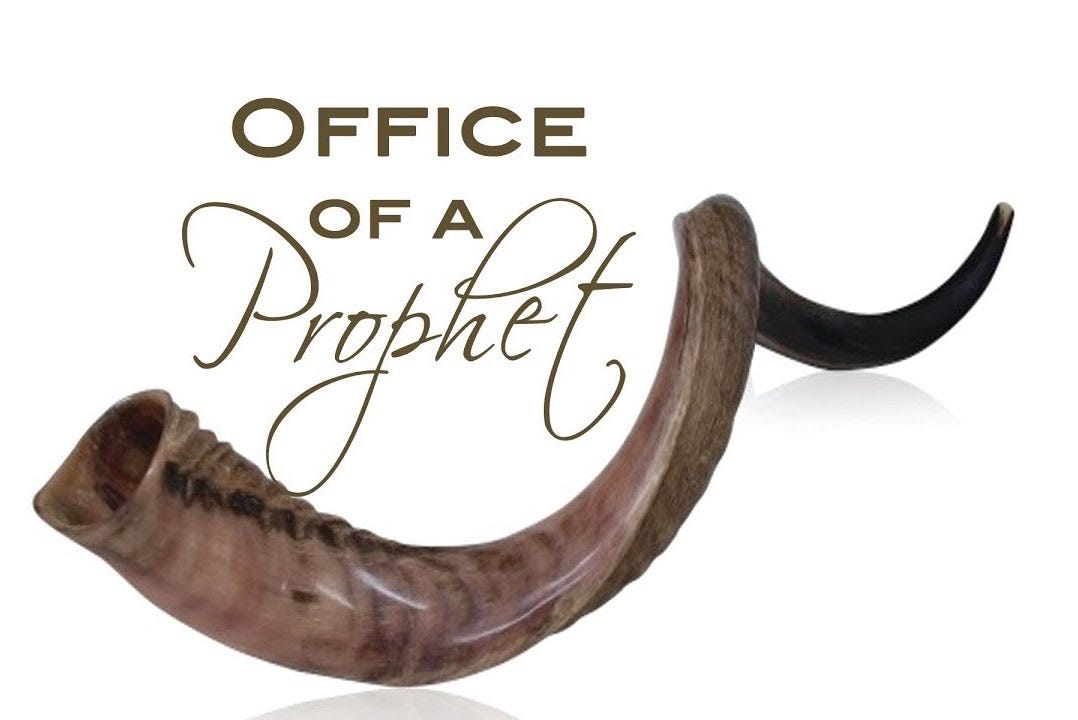Friend:
Do you see anything in the New Testament which would lead one toward using the term “Ephesians 4 Prophet” to designate the “office” of a prophet as opposed to just anyone with a prophetic gift? [Some people] point to 1 Corinthians 12 where Paul seems to imply very distinct roles—1. Apostle, 2. Prophet—but I dont think his overall gist would be that we start using those as definers of who we are.
Me:
First, the gist of the New Testament on contemporary prophecy is that it’s something lots of people can do (Matthew 7:22; Acts 2:17-18, 19:6, 21:9; 1 Corinthians 14:31) that’s subject to the judgment of all (Matthew 7:15, 1 Corinthians 12:3, 14:29; 1 Thessalonians 5:19-20; 1 John 4:1).
Second, the Bible does not draw a distinction between a “prophet” and “one who prophesies.” Those who read Ephesians 4:11 and 1 Corinthians 12:28 as doing so are baking their own ideas into the text. (Similarly, those who read the fivefold list in Ephesians 4:11 as a non-overlapping set of Christians entirely different from the “saints” in verse 12 are betraying their own presuppositions.) In everyday life, do we draw a distinction between “speaker” and “the person speaking” or “teacher” and “the person teaching”? No.
Sure, it’s theoretically possible to draw a distinction between the two on the basis of, say, frequency. But the Bible doesn’t: The Samaritan woman “perceived that Jesus was a prophet” (John 4:19) after he spouted just two facts about her.
And yes, it’s true that in Revelation, the “prophets” are distinguished from the “saints,” but the prophets in mind seem to me to be the prophets most often mentioned in the New Testament (especially Acts): those of the pre-New-Covenant era who have Old Testament books named after them.
Finally, Jesus commanded us to avoid the titles ‘Rabbi,’ ‘Father,’ and ‘Instructor’ in light of the uniqueness of God’s authority, the universal brotherhood of man, and the importance of humility (Matthew 23:6-12).
In light of the above, I contend that deeming someone a ‘Prophet’ in any sense other than simply “one who prophesies” is a dubious practice whose only function is to establish illegitimate authority. What purpose does it serve except to puff up the one prophesying and prematurely lend gravitas to his words?



